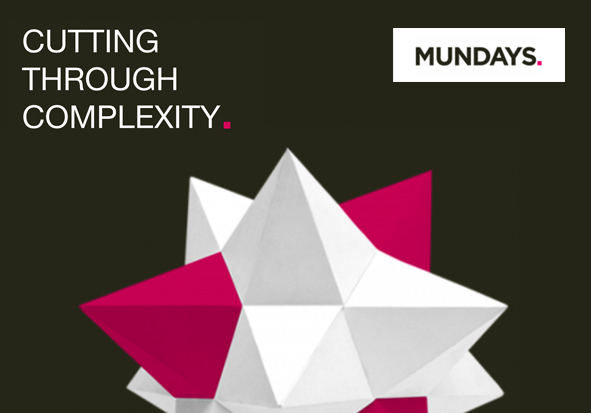LEGAL
Surrey’s Premier Lifestyle Magazine
Islamic finance
Kevin Healy, Partner at Mundays LLP, explains the differences between conventional finance and Islamic Finance.

London Central Mosque, Regent's Park PHOTO COPYRIGHT: Anthony Baggett | 123rf.com
Islamic finance, despite its name, is not a religious product. It’s a rapidly growing series of financial products developed to meet the requirements of a specific group of people. Under traditional financial services there are elements of interest and risk and these are prohibited under Shari’ah Law. The field of Islamic Finance has grown rapidly over recent years to allow Muslims to invest savings and raise finance in a way which does not compromise their religious or ethical beliefs.
At Mundays there is a dedicated team of property finance experts who deal exclusively with Shari’ah funding, acting for both private individuals and Islamic banks across the UK. These products are increasingly appealing to a broader spectrum of people looking to invest for ethical reasons and sound financial reasons in these emerging products.
Islamic Finance, whilst undergoing a resurgence in recent years, has its roots in the past. These links to the past are based on principles and features which were established more than 1,400 years ago. It’s becoming more relevant today due to the fact that these ancient features are now being presented to contemporary society in a form which is both modern and innovative.
Whilst Islamic Finance is distinctive from conventional finance in a number of ways, there is a common goal in achieving the same economic benefit as conventional finance offers.
Shari’ah gives guidance in terms of belief, moral conduct and practical rulings of law. According to Islam a complete system of life is based on both legal prescriptions and moral and good conduct. Consequently moral values have been incorporated as legal requirements in some specific contracts such as Amanah (honesty) in Murabahah (mark-up). There are many principles running through the core of all Islamic Finance commercial transactions although the main ones include:
• Prompt payment of debt or delivery of an asset;
• Tolerance in terms of bargaining, where the parties are encouraged to be considerate of each other’s requirements and circumstances;
• Mutual revocation of a contract on request by one party if they find themselves uncomfortable with the outcome of the transaction;
• Honesty or Amanah in all statements, representations and warranties.
Islamic Finance is a term that reflects financial business that is not contradictory to the principles of Shari’ah. Conventional finance, for example conventional banking business, relies on taking deposits from and providing loans to the public. Consequently the banker-customer relationship is always one of debtor-creditor. A further key aspect of conventional banking is the giving or receiving of interest which is specifically prohibited by Shari’ah.
Another example of a conventional banking practice can involve the selling or buying of goods and services that are certainly not lawful from a Shari’ah perspective. These might be non-Halal foods such as pork, alcohol or services related to gambling, pornography and entertainment.
What are the components of Islamic Finance?
Banking and interest (Riba)
Money has never been considered as a commodity for which there is a price for it to be used. Instead, Islamic Law consistently views money as a method of exchange, a store of value and a unit of measurement. As money cannot earn money, a link has to be introduced between money and profit as an alternative to interest. Those involved in Islamic Banking are not in a position to either borrow or lend money for interest. Subsequently the nature of the Islamic banker-customer relationship varies according to the different contracts that Islamic Banks and their customers enter into. Rather the relationship of a bank with an investor can be one of agent and principal, depositor and custodian, investor and entrepreneur as well as between fellow joint investment partners.
Takaful – Islamic insurance
In these circumstances the insurance company cannot provide indemnity to the insured as this is not acceptable to Shari’ah principles. This is because both the premium and the indemnity paid are both uncertain and therefore not permissible as they contain the element of uncertainty or Gharar. The principle of Takaful therefore introduces the contract of donation as a substitute for the contract of an indemnity of a premium.
Interest free
All banking business and activities must be free from any element of interest.
The requirement for underlying assets
Islamic Finance requires that all banking business based on a sale or lease must have an underlying asset. This is in direct contrast to conventional banking where assets are charged or assigned as security.
Avoidance of uncertainty or gambling
All transactions by Islamic institutions must be free from the elements of uncertainty (Gharar) and gambling (Maisir).
The principle of profit and loss sharing
This is possible in Islamic Banking activities. The bank will share the profit made with its customers. In the case of a loss, the loss would be borne by the bank under the Mudarabah Contract or by both parties proportionately in the case of a Musharakah Contract. This differs from conventional banking in the form of fixed income based products.
How then does Islamic
Finance compare with conventional finance?
Islamic Finance does not and should not deal with money directly as money cannot earn more money by itself. Money must be put into real business activities to earn extra money. This underpins the principle of trading. In other words, Islamic Banks facilitate the financing needs of customers by becoming sellers, lessors or partners as the case may be, depending on the particular structure that is created by the bank and the client.
This process transforms money from a mere commodity into a tangible process to facilitate trading, leasing and investment.
Money collected through Islamic accounts and/or shareholders’ funds is channelled to finance trade, leasing or investment activities. Any profit created by Islamic Banks arises from the process of dealing with a real asset rather than a monetary asset. This explains the basis of the main contracts use in the development of Shari’ah compliant products which are:
• Bay’Mu’Ajjal (deferred payment);
• Ijarah (operating lease);
• Istisna’ (construction finance);
• Mudarabah (partnership contract);
• Murabahah (cost-plus);
• Musharakah (partnership contract where funder has executive involvement);
• Wadiah (safe custody);
• Wakalah (agency).
The two most popular forms of finance are Mudarabah and Murabahah.
Islamic funding in the UK and across the world has never been stronger with Islamic Banks appealing to a broad spectrum of investors.
At Mundays there is a dedicated team of property finance experts who deal exclusively with Shari’ah funding, acting for both private individuals and Islamic banks across the UK. These products are increasingly appealing to a broader spectrum of people looking to invest for ethical reasons and sound financial reasons in these emerging products.
Islamic Finance, whilst undergoing a resurgence in recent years, has its roots in the past. These links to the past are based on principles and features which were established more than 1,400 years ago. It’s becoming more relevant today due to the fact that these ancient features are now being presented to contemporary society in a form which is both modern and innovative.
Whilst Islamic Finance is distinctive from conventional finance in a number of ways, there is a common goal in achieving the same economic benefit as conventional finance offers.
Shari’ah gives guidance in terms of belief, moral conduct and practical rulings of law. According to Islam a complete system of life is based on both legal prescriptions and moral and good conduct. Consequently moral values have been incorporated as legal requirements in some specific contracts such as Amanah (honesty) in Murabahah (mark-up). There are many principles running through the core of all Islamic Finance commercial transactions although the main ones include:
• Prompt payment of debt or delivery of an asset;
• Tolerance in terms of bargaining, where the parties are encouraged to be considerate of each other’s requirements and circumstances;
• Mutual revocation of a contract on request by one party if they find themselves uncomfortable with the outcome of the transaction;
• Honesty or Amanah in all statements, representations and warranties.
Islamic Finance is a term that reflects financial business that is not contradictory to the principles of Shari’ah. Conventional finance, for example conventional banking business, relies on taking deposits from and providing loans to the public. Consequently the banker-customer relationship is always one of debtor-creditor. A further key aspect of conventional banking is the giving or receiving of interest which is specifically prohibited by Shari’ah.
Another example of a conventional banking practice can involve the selling or buying of goods and services that are certainly not lawful from a Shari’ah perspective. These might be non-Halal foods such as pork, alcohol or services related to gambling, pornography and entertainment.
What are the components of Islamic Finance?
Banking and interest (Riba)
Money has never been considered as a commodity for which there is a price for it to be used. Instead, Islamic Law consistently views money as a method of exchange, a store of value and a unit of measurement. As money cannot earn money, a link has to be introduced between money and profit as an alternative to interest. Those involved in Islamic Banking are not in a position to either borrow or lend money for interest. Subsequently the nature of the Islamic banker-customer relationship varies according to the different contracts that Islamic Banks and their customers enter into. Rather the relationship of a bank with an investor can be one of agent and principal, depositor and custodian, investor and entrepreneur as well as between fellow joint investment partners.
Takaful – Islamic insurance
In these circumstances the insurance company cannot provide indemnity to the insured as this is not acceptable to Shari’ah principles. This is because both the premium and the indemnity paid are both uncertain and therefore not permissible as they contain the element of uncertainty or Gharar. The principle of Takaful therefore introduces the contract of donation as a substitute for the contract of an indemnity of a premium.
Interest free
All banking business and activities must be free from any element of interest.
The requirement for underlying assets
Islamic Finance requires that all banking business based on a sale or lease must have an underlying asset. This is in direct contrast to conventional banking where assets are charged or assigned as security.
Avoidance of uncertainty or gambling
All transactions by Islamic institutions must be free from the elements of uncertainty (Gharar) and gambling (Maisir).
The principle of profit and loss sharing
This is possible in Islamic Banking activities. The bank will share the profit made with its customers. In the case of a loss, the loss would be borne by the bank under the Mudarabah Contract or by both parties proportionately in the case of a Musharakah Contract. This differs from conventional banking in the form of fixed income based products.
How then does Islamic
Finance compare with conventional finance?
Islamic Finance does not and should not deal with money directly as money cannot earn more money by itself. Money must be put into real business activities to earn extra money. This underpins the principle of trading. In other words, Islamic Banks facilitate the financing needs of customers by becoming sellers, lessors or partners as the case may be, depending on the particular structure that is created by the bank and the client.
This process transforms money from a mere commodity into a tangible process to facilitate trading, leasing and investment.
Money collected through Islamic accounts and/or shareholders’ funds is channelled to finance trade, leasing or investment activities. Any profit created by Islamic Banks arises from the process of dealing with a real asset rather than a monetary asset. This explains the basis of the main contracts use in the development of Shari’ah compliant products which are:
• Bay’Mu’Ajjal (deferred payment);
• Ijarah (operating lease);
• Istisna’ (construction finance);
• Mudarabah (partnership contract);
• Murabahah (cost-plus);
• Musharakah (partnership contract where funder has executive involvement);
• Wadiah (safe custody);
• Wakalah (agency).
The two most popular forms of finance are Mudarabah and Murabahah.
Islamic funding in the UK and across the world has never been stronger with Islamic Banks appealing to a broad spectrum of investors.
essence info
Mundays LLPCedar House, 78 Portsmouth Road, Cobham KT11 1AN
Telephone: 01932 590500
Website: www.mundays.co.uk
Profile: Kevin Healy, Partner
Kevin has over 20 years experience in property matters and is Head of Mundays’ Residential Property and Construction departments.Kevin has extensive experience in the field of property development, in particular commercial land acquisitions for residential developers including joint venture agreements, development agreements and conditional contracts.
He acts for a wide variety of clients and has significant experience in representing contractors and employers in the drafting and negotiating of bespoke and standard forms of construction contracts including professional appointments and collateral warranties.
Kevin also has broad experience in planning matters including the drafting of planning agreements with local authorities and in general commercial property work including office and retail leasing and landlord tenant matters.
Kevin can be contacted by telephone on 01932 590 638 or by email at kevin.healy@mundays.co.uk

